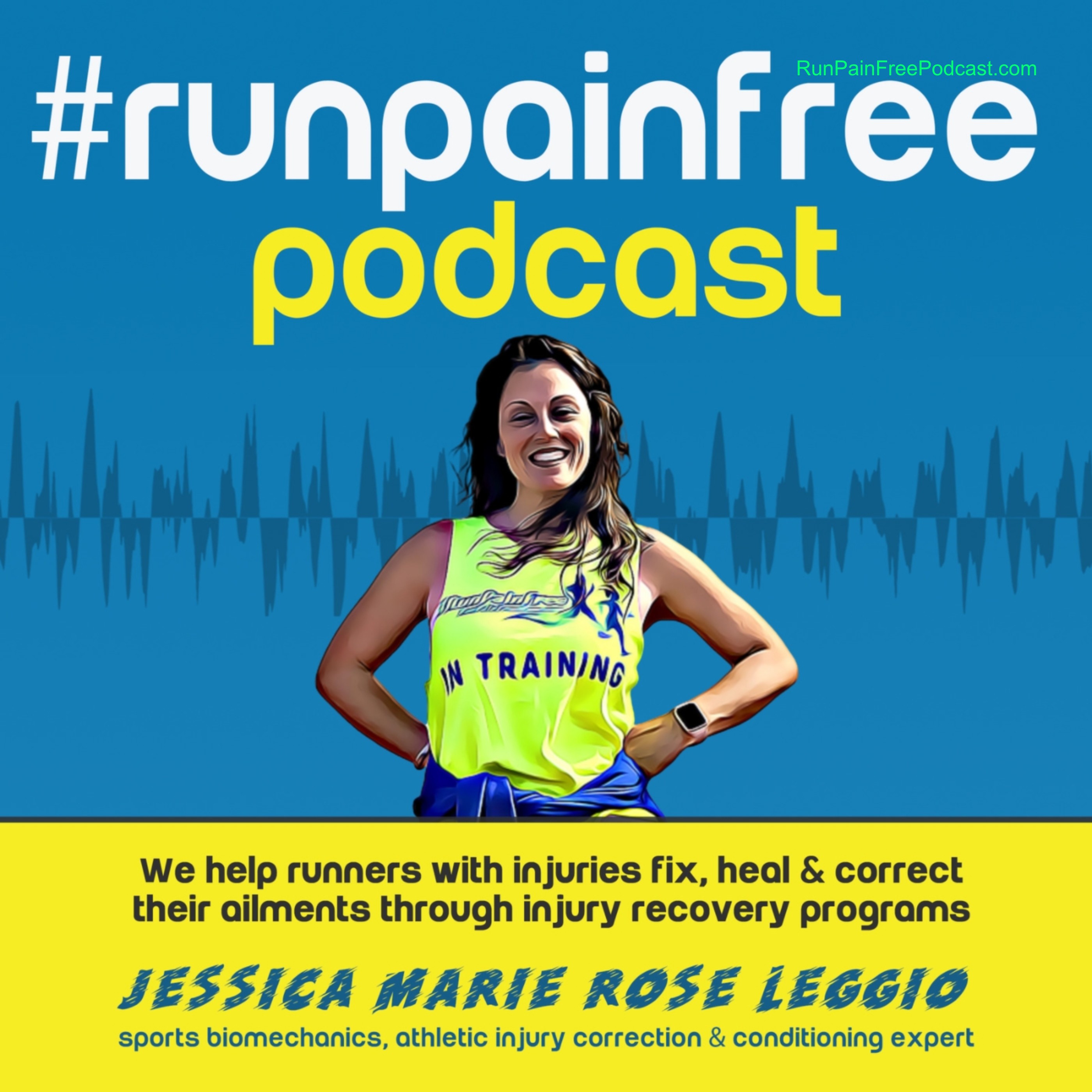🎧 Are You Running With A Healthy ❤️ Heart? 🏃♀️
Description
In today's podcast, Coach Jessica Marie Rose Leggio interviews cardiologist Dr. Rachel Bond. We discuss what runners need to know should they face a heart problem when running. Dr. Bond breaks down the different types of heart problems and discusses the underlying risk factors. So pay attention, this one is a lifesaver!
Heart attack
The technical term for a heart attack is a myocardial infarction. It occurs where the heart has a build-up of plaque. To keep it simple, plaque is the build of cholesterol in the artery. Eventually, the plaque can become unstable and rupture. This occurrence leads to the body creating new cells that go to that area to protect that plaque. As a result, it closes off blood flow to an area of the heart.
Bottom line: A heart attack is an emergency. Call 911, get to the hospital ASAP, so you are provided medical care.
Cardiac arrest
80% of the time, a cardiac arrest occurs because your heart completely stops. 20% of the time, a cardiac arrest is brought on by breathing difficulties—for example, a drowning swimmer or someone who has ingested intoxicants.
Bottom line: A cardiac arrest means you don't have a pulse. That's an emergency. If you notice a runner that has collapsed on the run, check their pulse immediately and call 911. If you have appropriate training, do chest compressions until the ambulance arrives.
Sudden death
Sudden death is a form of cardiac arrest that occurs when the person doesn't have any risk factors for underlying heart disease.
Bottom line:
Call 911.
If trained, start CPR immediately.
Find and source an automatic external defibrillator.
If you have any of these symptoms, do a stress test.
Stress tests are given to people when there is a suspicion that they have underlying heart disease. Symptoms of underlying conditions may include someone who experiences chest discomfort and difficulty breathing when exerting themselves. However, often medical professionals don't know women's specific heart attack symptoms.
"For women a heart attack may have symptoms of fatigue, dizziness, or a racing heart."
A stress test should also be performed for people with a family history of early heart disease.
Heart attacks kill more women than all cancers combined. Here's what you need to know
You may think breast cancer is the most significant risk for women; however, the sad news is that it is a heart attack. While the cardiovascular disease doesn't have one screening tool such as the mammogram, 80% of the time, heart disease is driven by risk factors.
What are the risk factors?
· Elevated blood pressure
· Issues with cholesterol
· Excess weight and obesity
· Inactivity – less than 150 minute per week of moderate exercise
· Smoking
· Alcohol
Women-specific risk factors
Women-specific risk factors often have to do with hormonal changes that occur during pregnancy. Suppose a woman experienced a complication during pregnancy such as high blood pressure, pre-term labor (before 37 weeks), or preeclampsia. In that case, they have a higher risk for heart disease.
Bottom line: If you have any of these risk factors, without question, you need to be evaluated by a doctor and possibly a cardiologist.
Heart attack symptoms: the difference between men and women
In most cases, women present very similar symptoms to men when experiencing a heart attack.
"A heart attack feels like an elephant is sitting on your chest. This is a classic phrase we hear in the cardiology world."
However, a third of women may not experience any chest pain. Instead, they may experience neck, back, or jaw pain. Additionally, women may experience dizziness episodes; they may break out in a sweat or feel nauseous.
The red flag for women is fatigue. If you are doing everything right: taking your vitamins, eating healthy, sleeping well, but your b
More Episodes
Episode Summary:
In this episode, Coach Jessica dives deep into the often misunderstood and misdiagnosed condition known as runner's knee. She debunks common myths, explains why knee pain is rarely about the knee itself, and shares insights on addressing the root causes of the pain. This episode...
Published 06/14/24
Published 06/14/24
Discover the truth behind building bone density and why weightlifting alone isn't the answer. Join us as we delve into functional fitness and debunk common myths on the #RunPainFree Podcast.
🔹 In This Episode:
Debunking the misconception that weightlifting is the sole solution for bone...
Published 03/23/24


